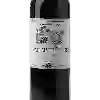
Château GaillardGamay Rosé
This wine generally goes well with beef
Food and wine pairings with Gamay Rosé
Pairings that work perfectly with Gamay Rosé
Original food and wine pairings with Gamay Rosé
The Gamay Rosé of Château Gaillard matches generally quite well with dishes of beef such as recipes of quick and easy monkfish tail.
Details and technical informations about Château Gaillard's Gamay Rosé.
Discover the grape variety: Gamay noir
Gamay is a Burgundian grape variety that has existed since the 14th century. For fear of competition with the pinot noir of Burgundy, gamay was finally uprooted and planted in the Beaujolais region, from Mâcon to Lyon. These siliceous and granitic soils suit it perfectly, and it gives its best here. But it is also planted all over France, such as in Lorraine, in the Loire Valley, in Bugey, in Savoie and in Auvergne. Gamay is early and very productive and needs to be limited so that quality prevails over quantity. Short winter pruning of the shoots and high density of vines per hectare are the methods that allow it to produce very fruity, fresh and greedy red wines. Gamay is also very popular in red wine futures, and produces wines from the Beaujolais region with very interesting character and ageing potential. The AOCs Crémant-de-Bourgogne, Mâcon, Anjou, Touraine, Rosé de vallée de la Loire, Côtes-d'Auvergne, Saint-Pourçain, Bugey, Gaillac, Côtes du Luberon... and many vins de pays are proud of it. Today, about 36,000 hectares of Gamay are cultivated in France, including 22,000 hectares in Beaujolais.
Informations about the Château Gaillard
The Château Gaillard is one of of the world's greatest estates. It offers 11 wines for sale in the of Beaujolais to come and discover on site or to buy online.
The wine region of Beaujolais
Beaujolais is an important wine region in eastern France, famous for its vibrant, Fruity red wines made from Gamay. It is located immediately South of Burgundy, of which it is sometimes considered a Part, although it is in the administrative region of Rhône. The extensive plantings of Gamay in this region make Beaujolais one of the few regions in the world that is so concentrated on a single Grape variety. Pinot Noir is used in small quantities in red and rosé wines, but in the name of regional identity, it is being phased out and will only be allowed until the 2015 harvest.
The word of the wine: Marc
Solid part resulting from the pressing of the grape (stalks, pips, skins).














